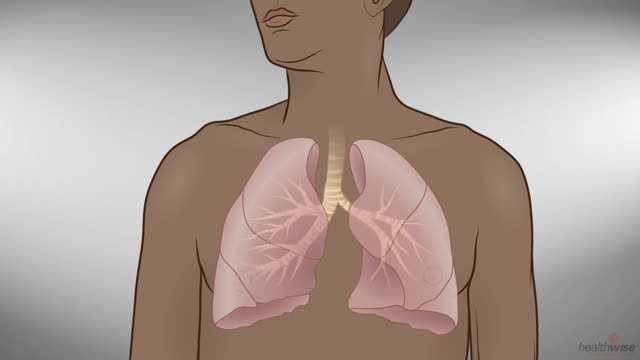Classification of Asthma
Topic Overview
The National Asthma Education and Prevention Program has classified asthma as:
- Intermittent.
- Mild persistent.
- Moderate persistent.
- Severe persistent.
These classifications are based on severity, which is determined by symptoms and lung function tests. You should be assigned to the most severe category in which any feature occurs.footnote 1
- Classification is based on symptoms before treatment.
- Classification may change over time.
- A person in any category can have severe asthma attacks.
- Asthma in children younger than age 4 can be hard to diagnose. And its symptoms may be different from asthma in older children or adults.
Intermittent asthma
Asthma is considered intermittent if without treatment any of the following are true:
- Symptoms (difficulty breathing, wheezing, chest tightness, and coughing):
- Occur on fewer than 2 days a week.
- Do not interfere with normal activities.
- Nighttime symptoms occur on fewer than 2 days a month.
- Lung function tests (spirometry and peak expiratory flow[PEF]) are normal when the person is not having an asthma attack. The results of these tests are 80% or more of the expected value and vary little (PEF varies less than 20%) from morning to afternoon.
Mild persistent asthma
Asthma is considered mild persistent if without treatment any of the following are true:
- Symptoms occur on more than 2 days a week but do not occur every day.
- Attacks interfere with daily activities.
- Nighttime symptoms occur 3 to 4 times a month.
- Lung function tests are normal when the person is not having an asthma attack. The results of these tests are 80% or more of the expected value and may vary a small amount (PEF varies 20% to 30%) from morning to afternoon.
Moderate persistent asthma
Asthma is considered moderate persistent if without treatment any of the following are true:
- Symptoms occur daily. Inhaled short-acting asthma medication is used every day.
- Symptoms interfere with daily activities.
- Nighttime symptoms occur more than 1 time a week, but do not happen every day.
- Lung function tests are abnormal (more than 60% to less than 80% of the expected value), and PEF varies more than 30% from morning to afternoon.
Severe persistent asthma
Asthma is considered severe persistent if without treatment any of the following are true:
- Symptoms:
- Occur throughout each day.
- Severely limit daily physical activities.
- Nighttime symptoms occur often, sometimes every night.
- Lung function tests are abnormal (60% or less of expected value), and PEF varies more than 30% from morning to afternoon.
If you or your child has persistent asthma (mild, moderate, or severe) and is receiving appropriate therapy, the goal of treatment should be to control symptoms so that they occur only as frequently as those of intermittent asthma.
Health Tools
Health Tools help you make wise health decisions or take action to improve your health.
Current as of: June 9, 2019
Author: Healthwise Staff
Medical Review:John Pope MD – Pediatrics & Adam Husney MD – Family Medicine & Elizabeth T. Russo MD – Internal Medicine
This information does not replace the advice of a doctor. Healthwise, Incorporated, disclaims any warranty or liability for your use of this information. Your use of this information means that you agree to the Terms of Use. Learn how we develop our content.


